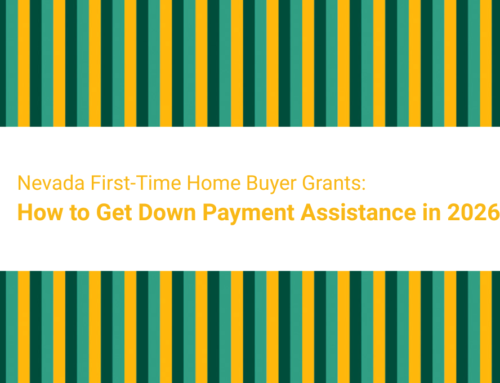Buying a home in Henderson is an exciting step toward long-term stability. Still, one question worries many buyers: Is my credit score good enough? That number can decide whether you get approved for a loan and what rate you pay.
Understanding your credit score can feel confusing. Some buyers think they need perfect credit, while others underestimate its role. The truth is, different loan programs have different score requirements. A small change in your score can impact how much you qualify for or how much interest you’ll pay.
This guide will explain the minimum credit score needed for common loan types. You’ll also learn why your score matters, how lenders review it, and how to improve it before applying. With the right steps, owning a home in Henderson can become a real possibility, even if your credit isn’t flawless yet.
Why Your Credit Score Matters
Your credit score tells lenders how responsible you are with money. It helps them decide whether to approve your loan and what interest rate to offer.
- Higher scores mean lower interest rates. Lenders trust you more and reward you with better loan terms.
- Lower scores may need larger down payments. It shows the lender you can share more of the risk.
- Scores affect loan type and size. Strong credit can qualify you for bigger loans or special programs.
- Scores reflect your financial history. Timely payments, low debt, and long account history all boost your number.
Knowing how your score influences approval helps you plan smarter. It also reduces surprises later in the process. For more insight, visit our Mortgage FAQs to learn how lenders use credit reports when reviewing applications.
Minimum Credit Scores by Loan Type
Each mortgage program has its own credit score requirement. Knowing these differences helps you choose the loan that matches your financial profile.
Conventional Loans
Conventional Home Loans usually require a credit score of 620 or higher. Borrowers with scores above 700 often receive lower rates and smaller down payments. A strong score also brings more loan options and better flexibility. If your score falls below 620, consider improving it before applying to qualify for stronger terms.
FHA Loans
FHA Loans in Nevada help buyers who may not have perfect credit or large savings. Many lenders accept scores as low as 580 with a 3.5% down payment. Some even allow scores between 500 and 579 with a higher down payment. These loans are popular among first-time buyers who want a smoother approval process and an easier qualification path.
VA Loans
VA loans support veterans, active-duty service members, and eligible spouses. The VA does not set a fixed minimum credit score, but most lenders prefer 620 or higher. These loans offer major advantages, including no required down payment and no private mortgage insurance. Learn more about VA loan options on our Home Loans in Henderson, NV page to see if you qualify.
Checking your credit score early helps you plan your next move with confidence. Visit our First-Time Homebuyer Guide to compare programs and find which fits your goals best.
How to Improve Your Credit Score

Even if your credit score is lower than you hoped, you can raise it over time. Small steps taken today can create big results when you apply for a mortgage.
Pay Bills on Time
Consistent, on-time payments show lenders that you manage money responsibly. Set reminders or automatic payments to avoid missing due dates. Each month of timely payments adds strength to your credit history.
Lower Credit Card Balances
Try to use less than 30% of your total credit limit. High balances can lower your score, even if you pay on time. Paying down cards before applying for a loan can quickly boost your rating and show better financial control.
Check Your Report for Errors
Review your credit report at least twice a year. Mistakes like duplicate accounts or incorrect balances can hurt your score. Fixing these issues early may raise your points and improve your approval chances.
Building good credit habits helps you qualify for more loan choices and better rates. To learn common terms like “debt-to-income ratio” or “credit utilization,” visit our Mortgage Glossary.
Common Myths About Credit Scores
Many homebuyers hold back because of credit score myths. Clearing these misunderstandings helps you move forward with confidence and realistic expectations.
- Checking your credit lowers your score. False. Checking your own credit is a “soft inquiry” and has no effect.
- You need perfect credit to buy a home. You don’t. Many buyers qualify with mid-range scores through flexible loan programs.
- Closing old accounts improves your score. Not always. Closing long-term accounts can shorten your credit history and lower your score.
- Paying rent or utilities never helps credit. Some reporting services now include these payments, which can build your score over time.
- A co-signer guarantees approval. A co-signer can help, but lenders still review your income, debts, and overall history.
Knowing the facts helps you focus on what truly matters. You can explore real success stories in our Client Testimonials and see how smart planning led many buyers to success.
Ready to Check Your Credit for Homeownership?

Your credit score is not the end of your dream; it’s the beginning of your plan. Understanding where you stand helps you prepare, improve, and choose the right path toward homeownership. At Drennen Home Loans, we guide buyers in Henderson through every stage, from credit evaluation to final approval. Our local team ensures you get the best advice and programs that match your financial goals.
📞 Have questions about your score? Reach out through our Contact a Loan Officer page today, let’s review your options together 🏡








